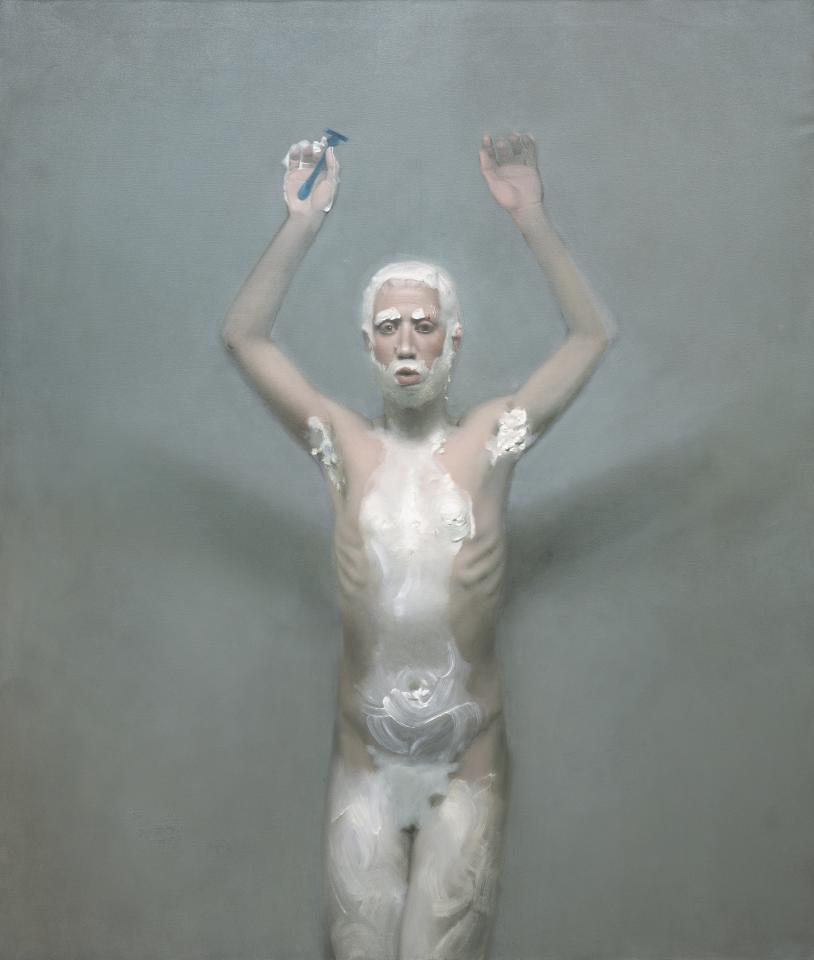Abel Techer et la fluidité du genre
Par Camille Bardin
2020
« I didn’t want to write about your work Abel, I just wanted to transcribe the exchange we had yesterday in your workshop and publish it as it is. It’s not that I lacked the desire, quite the contrary, but your painting is so intimate that it seemed inappropriate to impose my words on it. Writing about your work is like changing the furniture in a house where you are a guest, it is not done. But you asked me – to know my opinion, you said. So I will try to tell you how I felt about your paintings and, since this text is to be published, I will try – carefully – to explain to the person who will read it what they are about.

You’re the one we’re seeing. You’re here before us, dressed in your hairless flesh. Before you started to paint, you dropped your clothes, put on some gel and let that razor slide against your skin. The blade cut off all the hair your body produces: the hair on your legs, pubis, torso, face and skull. So here you are, in front of us, completely naked. Your face, because you have removed her eyebrows, has strange emotions. You know, Abel, I’ve always had trouble looking at a completely shaved face. Historically, it is one of the first forms of violence that torturers inflict on the condemned: witches were successively shaved to find the satanic mark on their bodies, the skulls of deported people, then those of women accused of having slept with the enemy at the end of the Second World War; today, a shaved head is also a sign of long, painful and sometimes vain chemotherapy. But for you, the symbolism is different. »
This text is an extract. Read the whole text.
It was written for Jeunes Critiques d’Art, a collective of authors which promotes independence, freedom of tone and commitment.